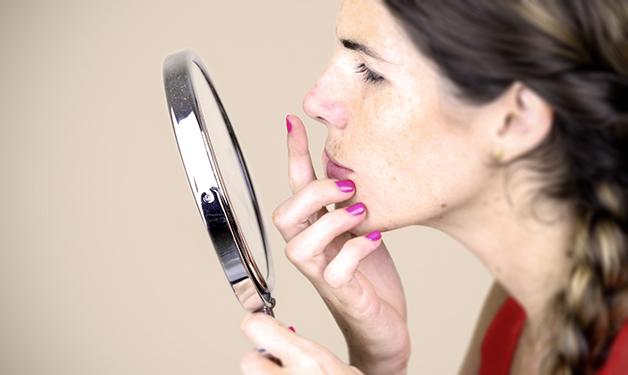
Dr. Shannon Humphrey explains why the right treatment information, tailored to each person’s skin type, is the best weapon for battling blemishes.
Q: I’m not a teenager any more – why am I still getting pimples? Are diet and stress culprits?
A: Adult acne is much more common than most of us think, for women more than men. Half of women in their 20s, a quarter of women in their 30s, and still 10 per cent of women in their 40s struggle with acne. Adult acne in women tends to have a cyclical pattern that follows the hormonal cycle. What we don’t know is why this seems to be on the rise. The incidence has been increasing over the years. Both diet and stress can certainly flare underlying acne but are not believed to be the root cause, so changing diet or reducing stress may lead to skin improvement but not resolution of acne.
Q: Is it still a bad idea to pop pimples?
A: Yes. Patients have a tendency to be really aggressive when they’re manipulating their own skin and anything beyond gentle manipulation of skin increases the risk of scarring and infection – so we really don’t recommend popping pimples. Your best defence is to get equipped with facts about what treatments are effective and to contact your physician, be it your family doctor or dermatologist, because virtually every case of acne can be treated.
Q: Is there one basic skin care ritual or regimen that all skin types could benefit from?
A: Patient’s skin care needs are so diverse that to make a basic skin care ritual or regimen for all really would be difficult to apply. However, there are some general principles. Cleansing should be gentler than you think. Very few patients need a harsh soap. Very few patients need an astringent or abrasive exfoliant. Gentle cleansing is key. Sun protection is critical, not only for skin cancer prevention but also for anti-aging. Finally, moisturization can really help restore the skin barrier and help the skin look and feel smoother and be better able to tolerate the fluctuations in Canadian weather.
Q: When is it time to see a doctor for treatment?
A: Mild acne can often be treated with an over-the-counter preparation. Low-concentration benzoyl peroxide is the gold standard for this – it’s been around a long time and can be purchased at most drug stores. If there’s not significant improvement within the first few months, or if there are side effects, those are signals that it’s time to talk to your doctor. Also, if the acne is moderate-to-severe, there’s scarring, or if there is a psychological impact, those are also signals to consult your family doctor or potentially to have things escalated to a dermatologist depending on the assessment. The key here is to take action, equip yourself with the right information, and commit yourself to finding the right treatment.
Q: How long does acne last and how long does it take to treat?
A: The average case of acne lasts for at least two years whereas the average prescription acne treatment regimen starts to work with significant improvement within two-to-three months. So when you compare two-to-three months for improvement versus two years or longer suffering from the condition it’s a pretty convincing argument to get started and find the appropriate, most effective regimen.
Q: Where can I find more information about treating acne?
A: The Acne and Rosacea Society of Canada website, www.acneaction.ca, has some great principles that can be referred to in terms of treating acne.
Have a question for dermatologist Dr. Shannon Humphrey? Find her at www.carruthers-humphrey.com, @HumphreyDerm on Instagram and Twitter, or on Facebook.



